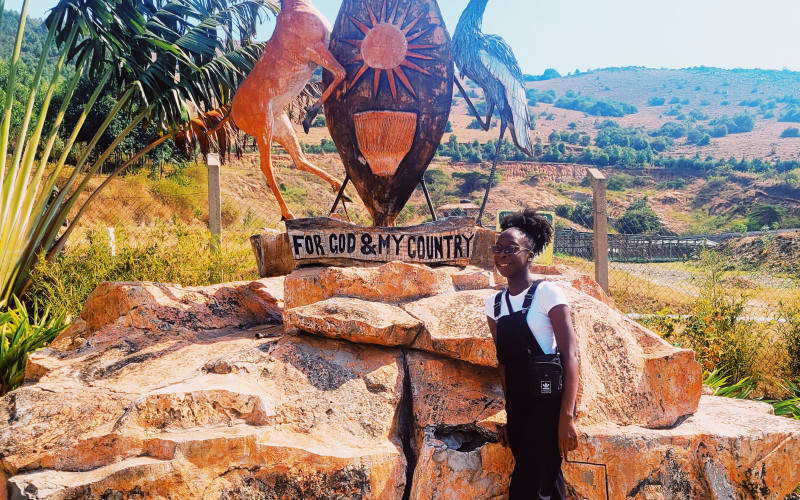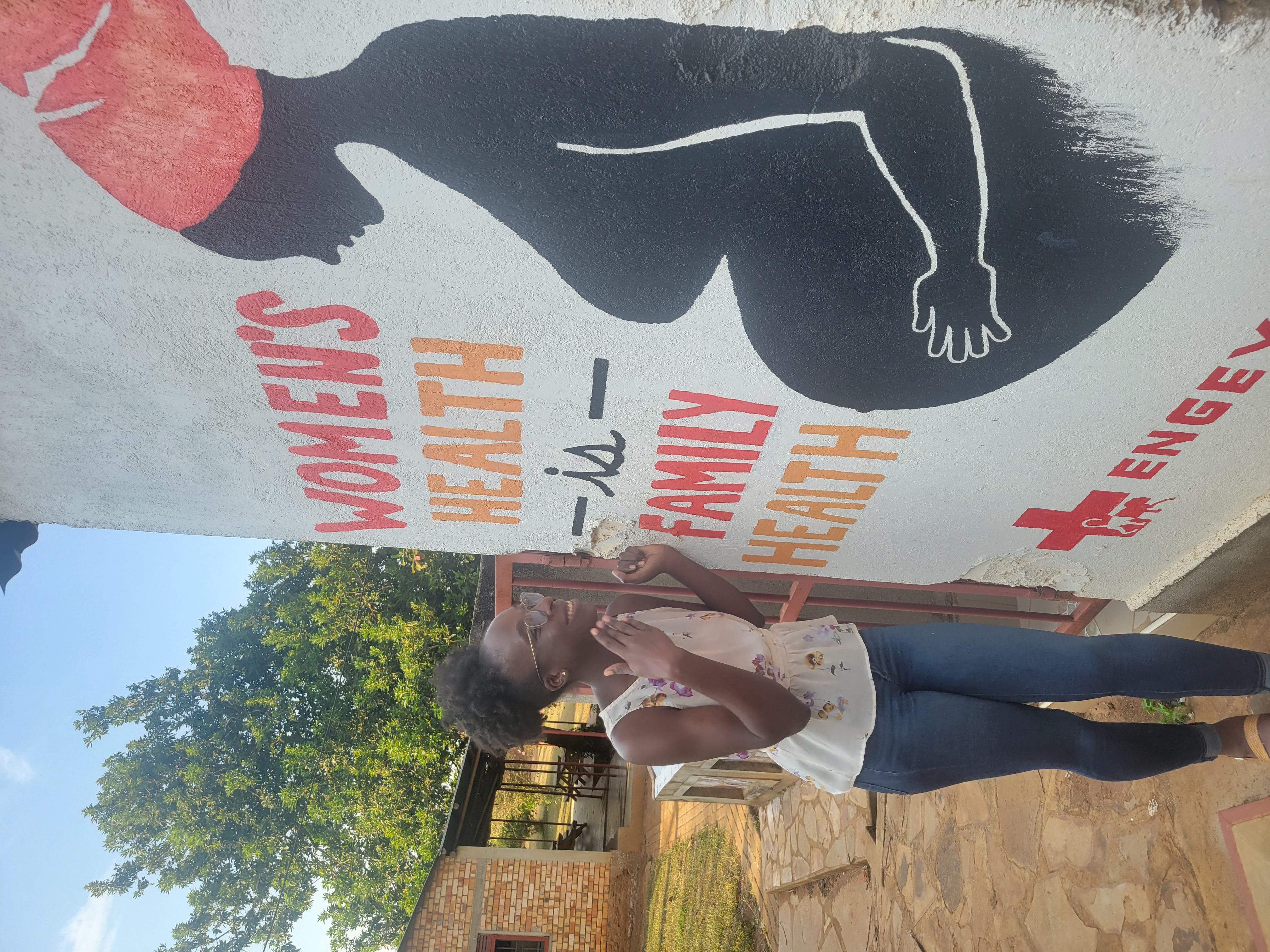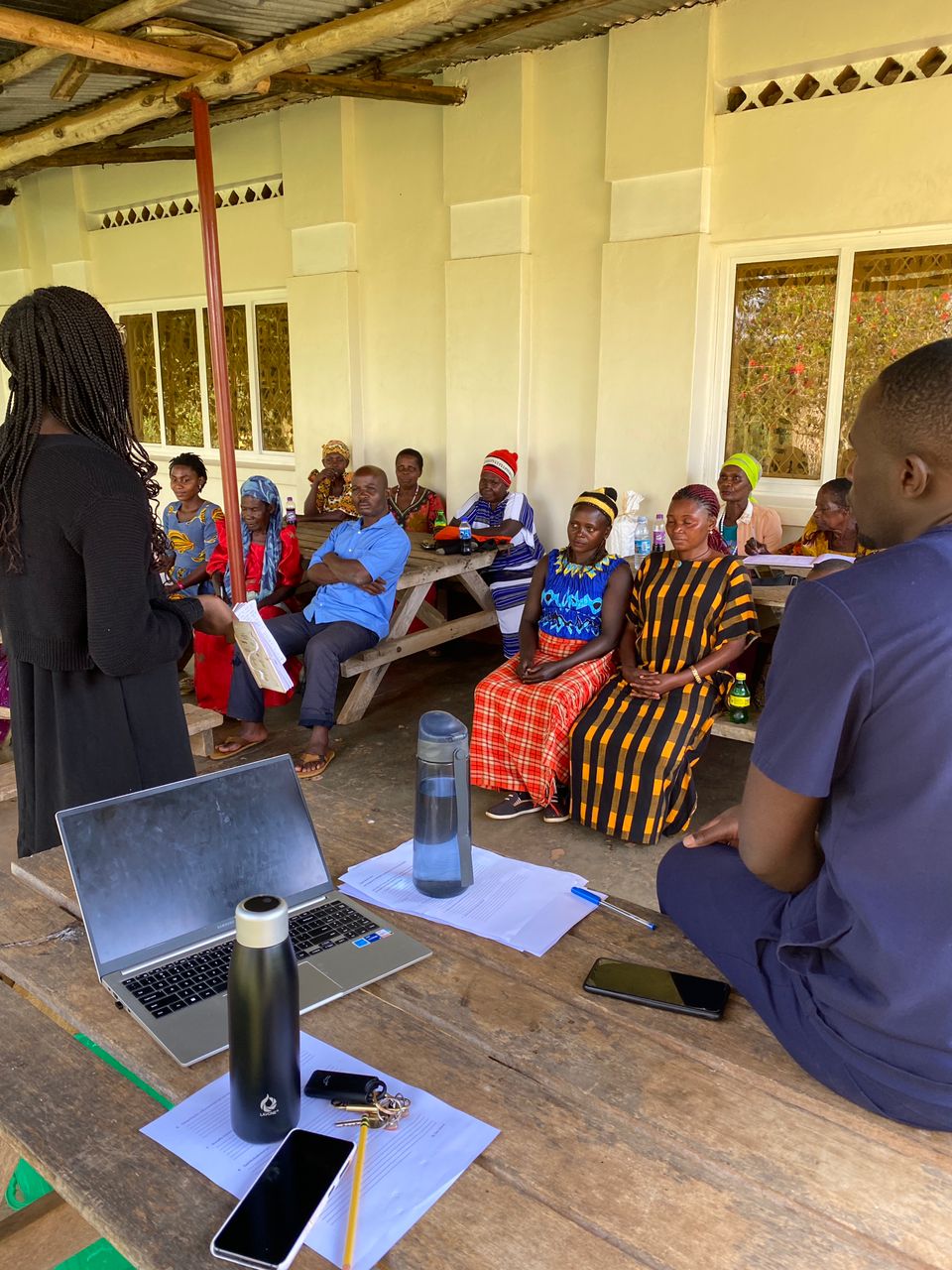MPH Student Evaluates Public Health Programs in Ddegeya Village, Uganda

ALBANY, N.Y. (Sept. 15, 2023) -- For the past three months, Master of Public Health student Zari Ward interned with Engeye Health Clinic in Ddegeya Village, Uganda, where she evaluated the progress and success of public health programs.
Ward’s days began in her temporary home on the Engeye clinic campus, where she ate fresh fruits like watermelon and pineapples before heading over to the main clinic building. Once situated at her desk each morning, she worked on a weekly epidemiological surveillance report, along with data collection and analysis. In particular, she evaluated two programs: the Maternity Services Program and the Village Health Team Training Program, which were both designed by Engeye clinicians and previous UAlbany interns using logic models.
“Engeye has been a fantastic global partner for many years, and it is wonderful to continue our relationship now that COVID-19 restrictions have been lifted for international student travel,” says John Justino, director of the School of Public Health’s Center for Global Health. “Students like Zari benefit immensely from the opportunity to apply their global health education in an international setting.”
Ward secured an internship with Engeye after speaking with Justino about undertaking a global health experience to enhance her current academic program. After connecting with former UAlbany students who had interned at Engeye before the pandemic, she decided to pursue an internship with the organization. She received funding from the Carol A. Whittaker Global Health Travel Award Fund, which assists students to live and work abroad as they gain skills to launch global health careers, and from UAlbany’s Initiatives for Women, which helps women at the University at Albany reach their professional goals.
“I have always been interested in global health, so I am grateful for the opportunity this internship afforded me to gain experience working in a foreign country,” Ward says.
Engeye staff also echo the benefit of this international collaboration.
“Engeye continues to value the partnership with the UAlbany School of Public Health. This long-standing collaboration connects Engeye with bright, hard-working interns who bring new skills and perspectives to the Engeye community,” says Theresa Weinman, president of the Engeye U.S. Board of Directors. “Our Ugandan staff look forward to the arrival of the UAlbany interns for their knowledge, work-ethic, commitment, and friendship.”
During her internship, Ward shadowed clinicians, midwives, and laboratory technicians as they cared for patients, and she also participated in Engeye's monthly Village Outreach Program, where medical checkups and medication are provided to people in surrounding villages with limited transportation to the clinic.
One of the highlights of Ward’s experience was helping to develop teaching cards for community health workers. The Ugandan government provides basic health information training to these workers, and they then serve as a resource for their community on health care information—particularly in areas that have limited health care services. Engeye partners with community health workers in nearby communities, called the Village Health Team, and provides health education training to them each month.
“The teaching cards weren’t initially a part of my internship description, but after designing an assessment to measure the Village Health Team’s knowledge of the top ten communicable diseases seen at Engeye, results showed that the teams needed more training on preventative methods, so we designed teaching cards for them to learn from and use to teach in their communities,” Ward says.
The teaching cards, which will soon be printed, laminated, and provided to the Village Health Team, covered communicable disease preventative methods in English and Luganda (the national language of Uganda) with culturally appropriate pictures to help showcase the measure.
“For example, we listed five ways of preventing pneumonia: covering your mouth and nose when you sneeze or cough, washing your hands frequently, stopping smoking, wearing a mask when sick, and limiting contact with others while recovering,” Ward explains. “This kind of information can be so helpful to limit the spread of disease.”
Now in the second year of her MPH program, Ward plans to graduate and seek out a role in epidemiology with a global health focus.
“While I have no idea what the future holds, I know this experience in Uganda will play a significant role in determining my next steps,” she says. “I had an amazing experience interning at Engeye and enjoyed witnessing the clinic’s impact on the local community of Ddegya Village and other surrounding communities.”




